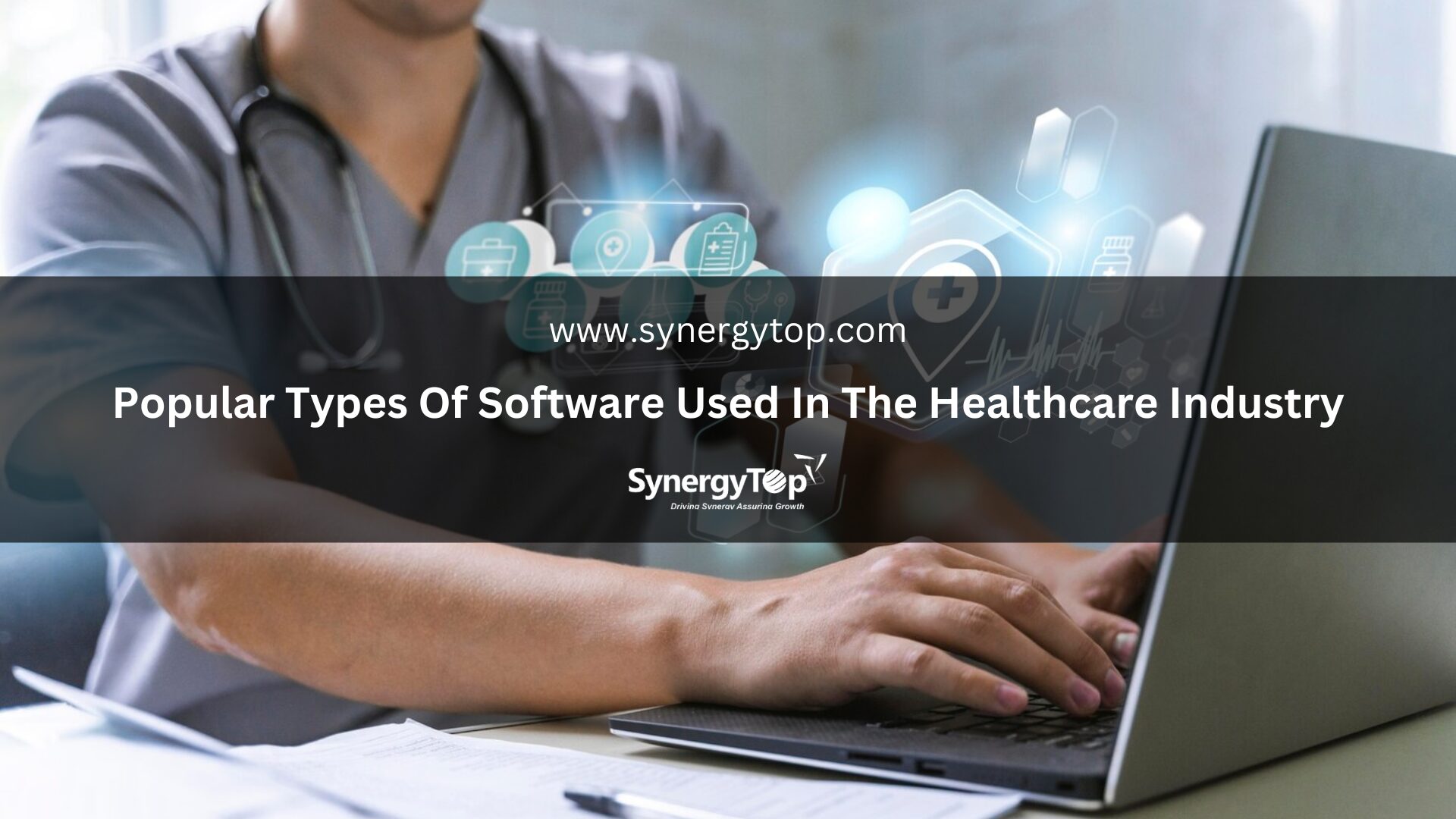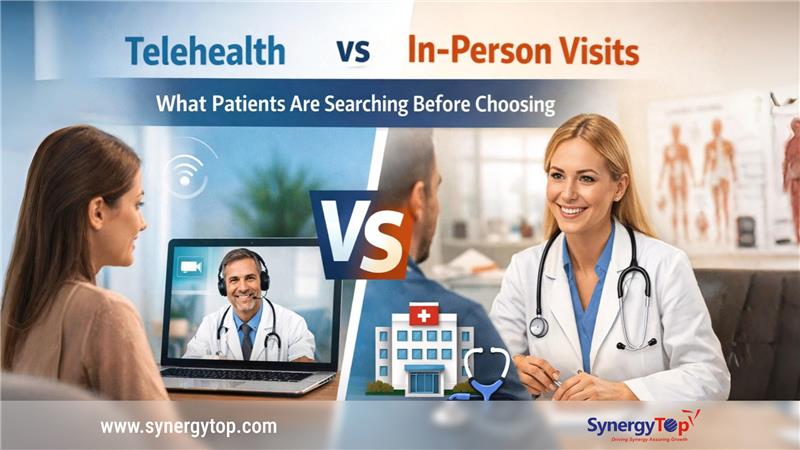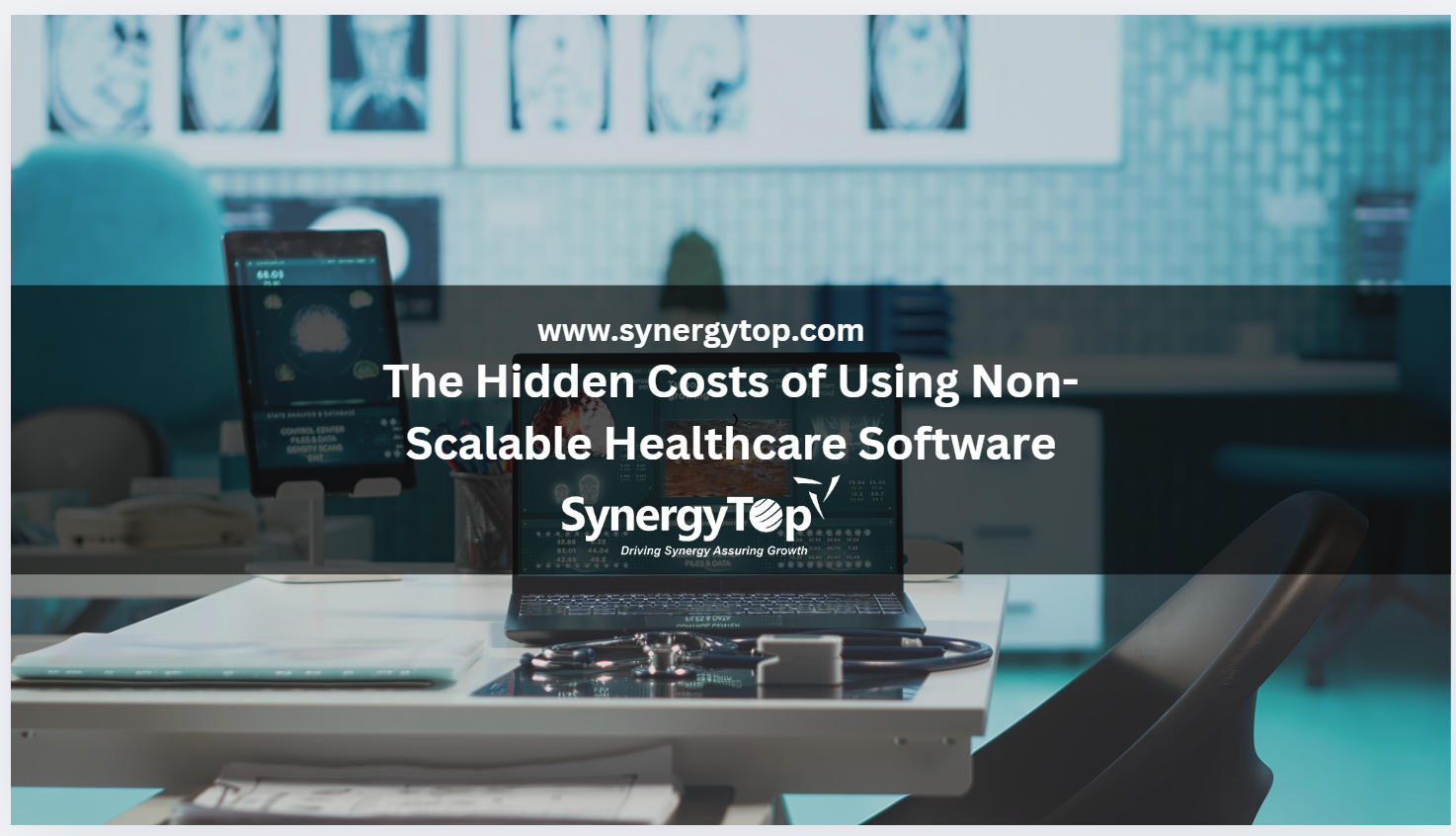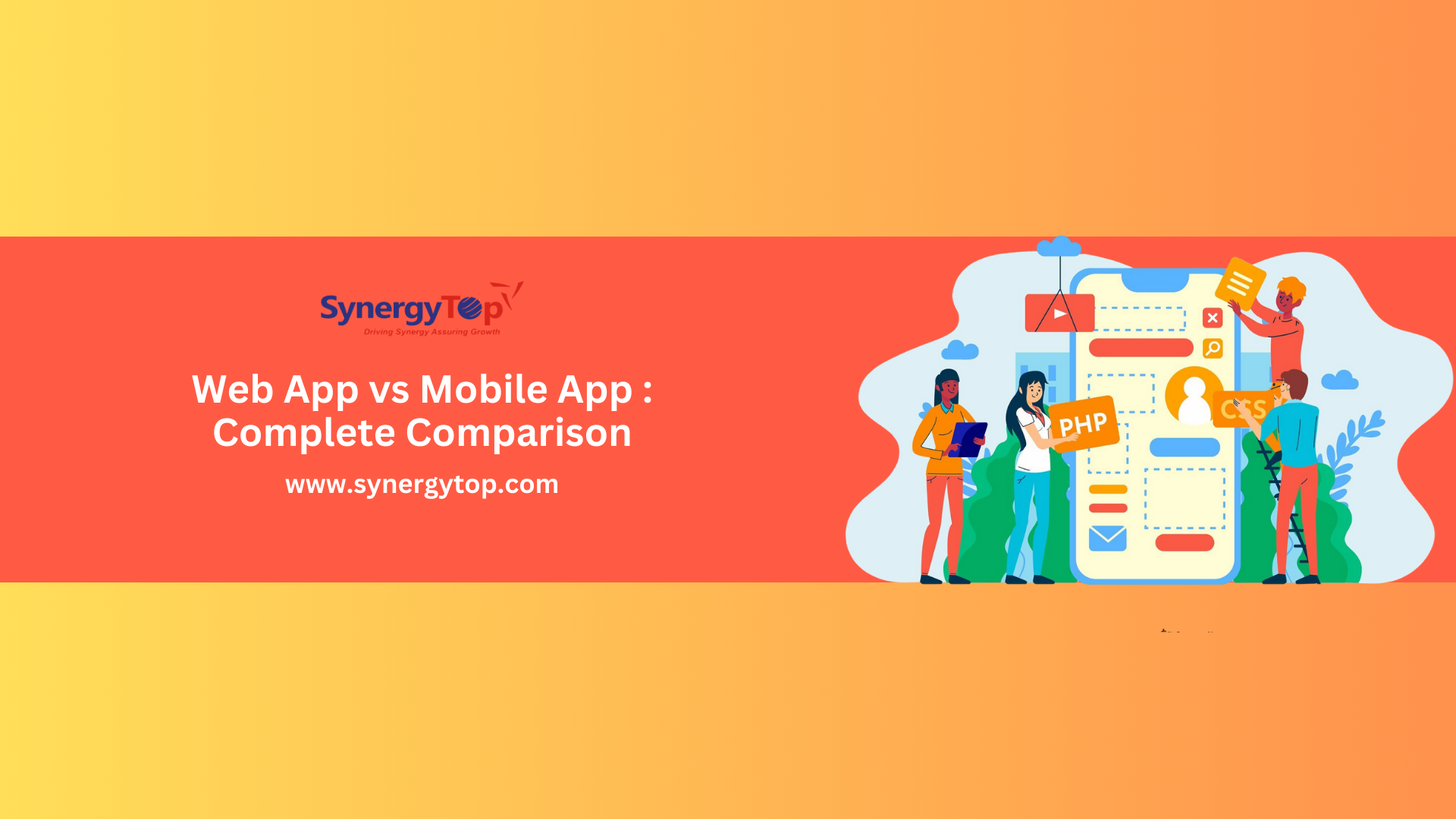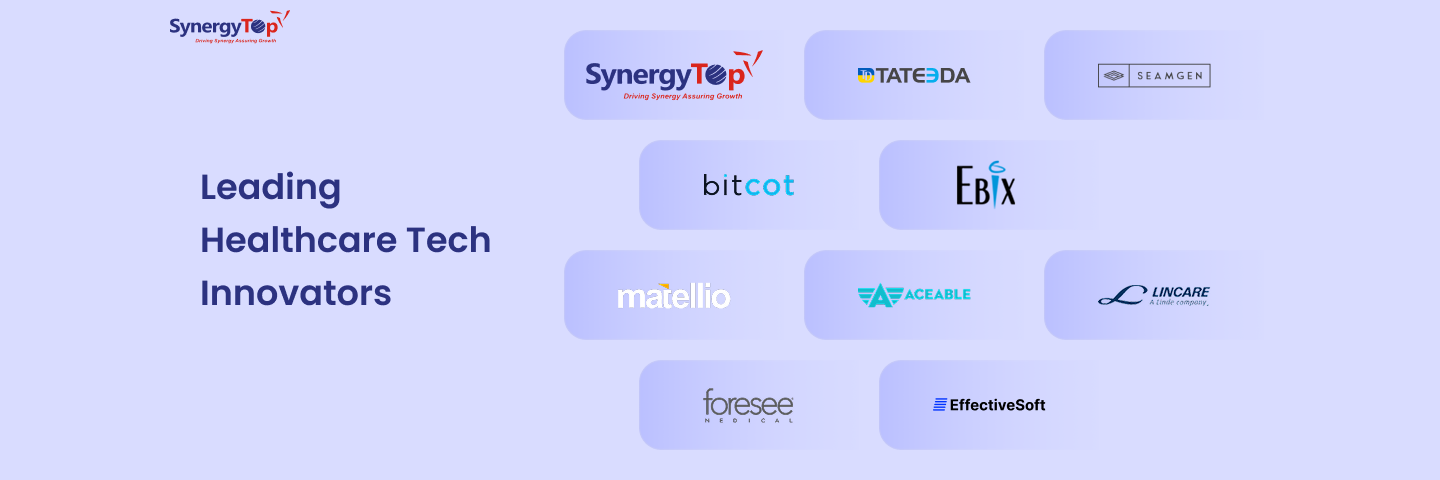The healthcare software market was valued at $28.66 billion in 2022. By 2032, the valuation is set to increase to $77.43 billion.
That's a cumulative average growth rate (CAGR) of 10.5%.
The key drivers of this growth are:
- Rising demand for telemedicine and remote patient monitoring
- Increasing adoption of electronic health records (EHRs)
- Growing emphasis on patient-centered care
- Advancements in AI and machine learning technologies
- Regulatory compliance and data security requirements
All healthcare domain stakeholders should now be exploring medical software development.
There are several types of healthcare software. Each has its own benefits and features.
But here's the tough part: Deciding what type of healthcare software to get developed.
Knowing the options available is the 1st step to making that choice. So let us explore the 5 different types of software used in healthcare industry.
5 Different Types of Healthcare Software Systems
Here are the 5 different types of healthcare software systems used in healthcare industry, their key features, and their benefits.
1. Electronic Health Records (EHR) Software
EHR is the most popular type of healthcare software. EHR software is basically used to digitally store and manage patient records. It makes the patients’ records easily accessible to healthcare providers.

An EHR software has the following key features:
- Patient history and demographics
- Clinical documentation
- E-prescribing
- Lab integration
- Reporting and analytics
Key benefits of getting an EHR software developed:
- Centralizes patient information
- Improves accuracy and completeness of patient data
- Enhances coordination among healthcare providers
Pro Tip: Integrating EHR with telemedicine platforms helps improve remote care delivery.
2. Practice Management Software
Practice management software assists in the day-to-day operations of medical practices. It is a type of medical software that streamlines administrative tasks.
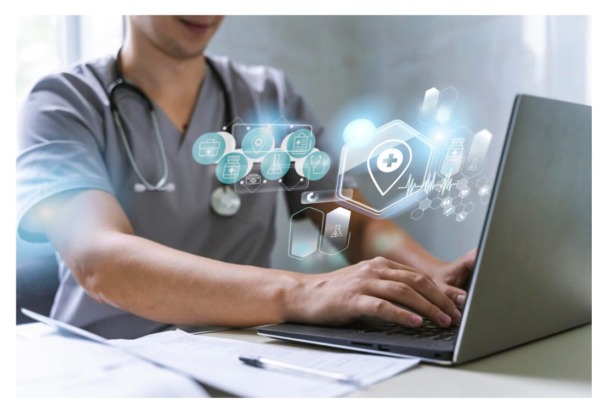
Some of the key features included in practice management software include:
- Appointment scheduling
- Billing and coding
- Patient registration
- Reporting and analytics
- Claims management
The key benefits of getting a practice management software developed include:
- Streamlines administrative workflows
- Reduces paperwork and errors
- Improves patient scheduling and billing processes
SynergyTop’s Practice Mangement System
At SynergyTop, we are a custom healthcare software development company. with 10+ years of experience, we have worked with healthcare experts from across the globe.
We have a deep understanding of the requirements of medical professionals and organizations. Plus, we have also developed a comprehensive practice management software solution
The medical software designed by our team includes various modules. These include Appointment Scheduling, Billing, Patient Management, and Report Management. The USP of the software is that it is not just for the clinic’s admin staff. The software also has a user-friendly mobile app for patients. Using the cross-platform mobile app, patients can quickly connect with doctors.
The patients can also directly send their lab reports to doctors via the app. They can also get reminders about medicine schedules.
Want to know more about our comprehensive healthcare software? Schedule a quick chat with our team today.
3. Telemedicine Software
Telemedicine software is the most trending type of medical software today. These solutions enable remote consultations between patients and healthcare providers through video conferencing.

Telemedicine software usually offers the following features:
- Video conferencing
- Secure Messaging
- Patient Portal
- E-prescribing
- Integration with EHR systems
The key benefits of using telemedicine software for your medical practice:
- Ability to offer healthcare services to a wider patient base
- Reduces travel time and costs for patients and medical service providers
- Enhances patient convenience and satisfaction
SynergyTop’s Telemedicine Software
As a custom healthcare software development company, we have worked on multiple telemedicine software. We recently developed a telemedicine software solution for a California-based practice. With our medical software development services, they got the following benefits:
- They are able to offer virtual treatment to patients across geographies.
- The web app enables seamless communication and virtual meetings, enhancing patient experience.
- The telehealth software also makes delivering patient care easy and quick.
Learn more about the healthcare software we developed here.
4. Medical Imaging Software
Medical imaging software facilitates the storage, analysis, and sharing of medical images. These images include such as X-rays, MRIs, and CT scans.
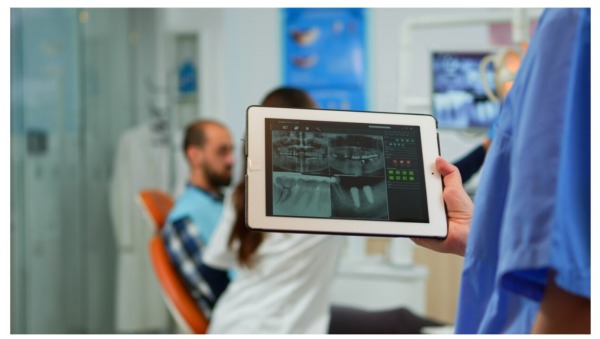
The key features available in medical imaging software include:
- Image storage and retrieval
- Advanced visualization tools
- Integration with PACS (Picture Archiving and Communication System)
- Reporting and analytics
- 3D modeling and reconstruction
Medical imaging software can help:
- Improves diagnostic accuracy
- Enhances collaboration among specialists
- Reduces the need for repeat imaging
Some advanced medical imaging software also offer ML-based diagnostic functionalities.
SynergyTop’s Medical Imaging Software
At SynergyTop, we have worked on a similar cancer-detection app.
The software is available as a cross-platform mobile app developed using React Native. The app aids semi-trained medical professionals in remote areas to detect skin cancer.
They just have to capture the skin images via the app, which then utilizes ML models to detect skin cancer. Learn more about the healthcare software and how it works here.
5. Laboratory Information Management Systems (LIMS)
A LIMS is a type of healthcare software specifically used for managing labs. It ensures accurate and efficient processing of tests and samples.

Laboratory information management systems offer the following key features:
- Sample tracking
- Test scheduling and processing
- Data management and reporting
- Quality control
- Integration with other healthcare systems
With LIMS software, you can get the following benefits:
- Increases laboratory efficiency
- Reduces errors and improves data accuracy
- Enhances regulatory compliance
Other Types Of Healthcare Software
There are many other types of healthcare software too, for example,
- Medical billing software
- Population Health Management (PHM) Software
- Surgical Planning Software
- Chronic Disease Management Software
- Medical Research Software
- And more…
Market Trends in Healthcare Software
Before you start healthcare software development also know the key market trends. Knowing what trends dominate the market helps align your software with user expectations. Also, it would help you build a product that has market acceptance and the potential for market dominance.
Some of the key trends shaping the future of healthcare software include:
1. Artificial Intelligence (AI) and Machine Learning
AI and machine learning are revolutionizing every domain today. Healthcare is no exception. Whether it is diagnostics, predictive analytics, or personalized treatment, AI is used extensively.
AI-powered software solutions can help healthcare providers:
- Identify diseases more accurately and early
- Forecast patient outcomes
- Use resources effectively
2. Telemedicine and Remote Monitoring
With the COVID-19 pandemic, telemedicine services and remote patient monitoring have gained ground. This virtual delivery of healthcare helps both patients and doctors.
- Patients can now get access to healthcare anytime, anywhere
- Healthcare providers can track patients’ vitals from afar, for flexible, timely care.
Integration of wearables and IoT devices also further enhances monitoring and patient outcomes.
3. Blockchain for Data Security
With the rise of cyber threats, data security has become a top priority in healthcare. Blockchain technology is emerging as a reliable solution for securing patient data. It ensures transparency and immutability in the healthcare system. It also allows healthcare organizations to maintain HIPAA and other data privacy compliance.
4. Cloud Computing in Healthcare
Cloud-based healthcare software is becoming the norm. With cloud software, organizations can store large volumes of data with easy access. It further supports scalability, helping organizations to manage large patient data with ease.
5. Patient-Centered Care Models
Software solutions are now used to enhance patient engagement and offer personalized care. is gaining popularity. Patient portals, mHealth apps, and telemedicine apps allow patients to take control of their healthcare. This improves satisfaction and treatment outcomes.
These healthcare software development trends show a significant shift towards smart, patient-centric healthcare. So when you invest in healthcare software development, do leverage these trends. This will help improve patient care and operational efficiency. Also, while staying competitive in the market.
Getting Healthcare Software Development Services
One negative experience makes patients 3X more likely to switch healthcare service providers.
This means you cannot compromise on your healthcare service offering. Technology, specifically medical software, can play a significant role in that.
You can learn more about healthcare software development here.
Here’s something else that you need to know: Healthcare software development isn’t easy.
It requires specialized expertise and experience to deliver successful results.
To get a successful medical software developed, you need to work with experts.
At SynergyTop, we have worked on 10+ unique healthcare development projects. With our healthcare software development services, you can get the following benefits:
- A custom software that matches your unique needs.
- 100% data security
- HIPPA and SOC2 compliance
- On-time within-budget deliveries
- Free initial consultation to help you get started.
Our team is all set to deliver similar results for your healthcare business. So, don’t wait. Schedule a call with our custom healthcare software development team today!


